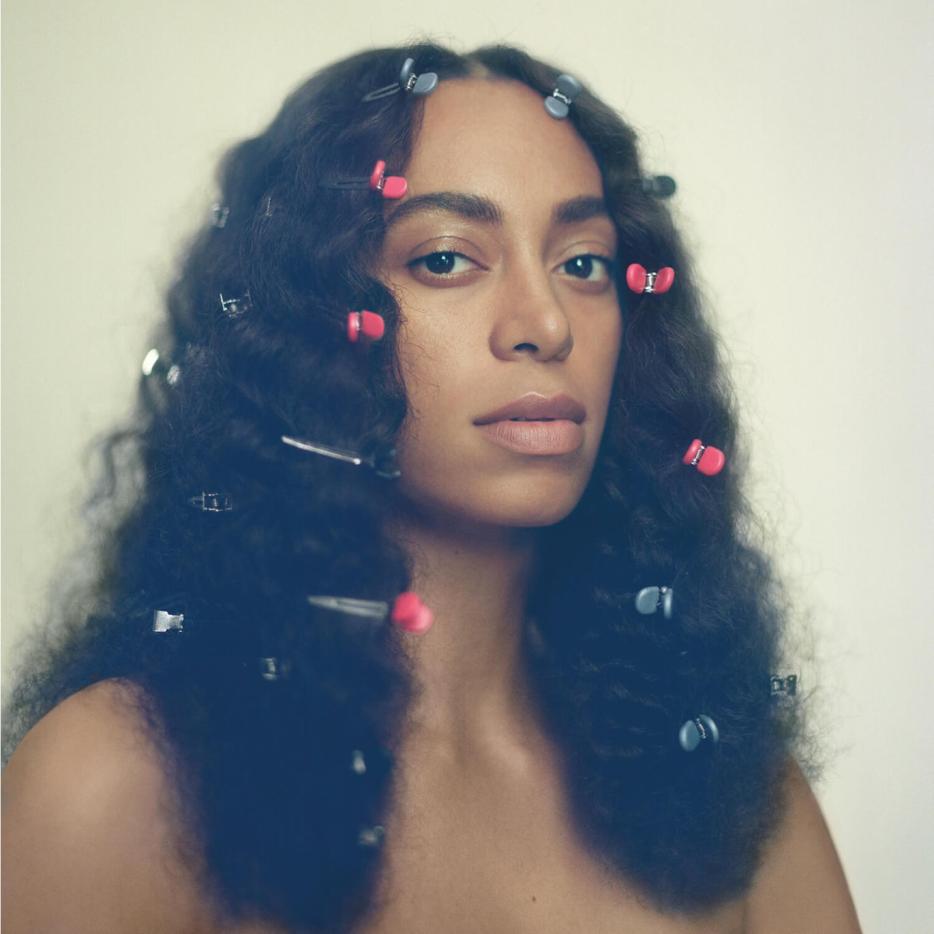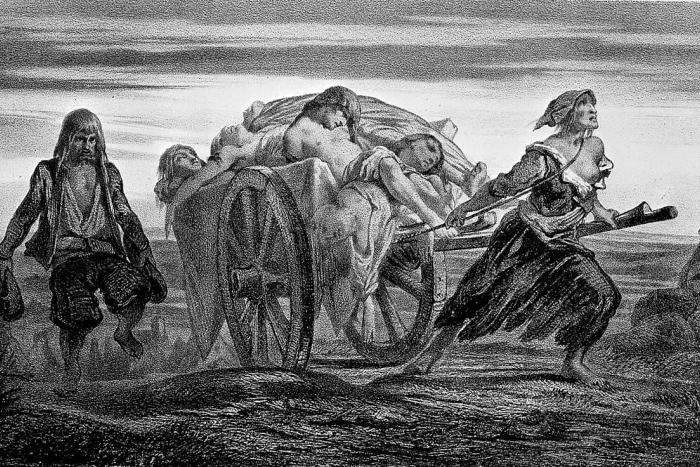What was important to us in 2016? Hazlitt’s writers reflect on the year’s issues, big and small.
“If you don’t understand us and understand what we’ve been through, then you probably don’t understand what this moment is about.”
– Master P, “This Moment” (from A Seat At the Table)
I spend a lot of time thinking (and writing) about the ways in which we, Black people, have been fucked up and fucked over in this great United States of America, so much so that I’m actually haunted by a lot of my work. Most of my nights are filled with dark, unidentifiable figures lurking in the shadows. Days, waking nightmares of my brothers and father getting shot. I woke up in tears once because I dreamt some white dude was trying to kill me in a movie theater.
Hazards of the job, I guess.
In 2016, Black Lives Matter and Black Twitter continued to prove they have the power to move mountains. Solange invited us to sing along with her and tell white people not to touch our hair. Issa Rae helped us get over our insecurities, and Donald Glover let us be absurd in Atlanta. Barry Jenkins illuminated our Black skin in the moonlight. There’s a huge Kerry James Marshall retrospective on display at The Met. I got box braids for the first time since I was eight. I was really looking forward to stepping into the light and writing about the year in peak Blackness.
And then election day came: Trump won, and all of a sudden I wasn’t sure how to write proudly about Blackness while living in a claimed white supremacy. I knew that Trump’s victory happened because scores of Americans buy into the idea that their path to liberation lies in whiteness. I knew those people wanted us to be sorry for having recently been, by their estimation, so very Black.
That knowing really got me down—to the point where the only good thing white people could do on November 9 was leave me alone. I spent the day listening to Solange, writing long Facebook posts (“Dear white friends and fam…”) and using capital letters (“STAY AWAY FROM ME!”), making fun of white liberals more invested in their Marxism than my safety. The email I sent to cancel the interview I was supposed to conduct basically amounted to, ”Sorry, I got the nigga flu.”
Despite not being a big drinker, I spent two virtual hours getting drunk in the middle of that day with my girlfriend Terri, one of the smartest people I know. Blackademic bae, she calls herself. It’s a fitting title.
“I’m in this pantsuit, but I’m a fucking snake!”we laughed over FaceTime. After a little whiskey, mocking the fifty-three percent of white women voters who actively chose to put a known pussy-grabber in office made us feel a little better. Simply spending time with Terri was like salve to a generations-deep wound. We were having a conversation I couldn’t have with my white girlfriends, many of whom are lovely but, at this point, grandfather-claused into my life. They were sad, too, they said. Some were texting me, wanting to know just how this could happen. How could any woman vote for him?
They clearly didn’t know their own history. Terri and I did.
“Why you think we this color?” she asked. It was a rhetorical question. Terri and her people can’t point to a single white person in their family line, but they’ve got brighter skin than me, the mixed one. Light enough to maybe even pass. “Because on big house plantations, white women consistently turned a blind eye to the bad behavior of their no good, piece of shit, abusive men.” Plantation mistresses knew about all the rape slave women endured at the hands of their husbands, they just chose not to do anything about it. “They basically handed us over, choosing whiteness instead of human decency. And then, yesterday, they went into those voting booths, and did the same damn thing. They decided they hate people of color more than they love their woman-selves.” I couldn’t disagree.
We weren’t surprised, just pissed off, and tired of being hurt. One of the most painful things about being despised in this country is being told you’re nobody, and the prevailing message on November 9 was “You ain’t shit.”
Later, I thought about asking my editor if I could refocus the essay; I toyed with writing “The Year in White Tears” so I wouldn’t have to pretend to be proud when I felt so defeated and just wanted to, literarily, rage. But then it hit me: Practicing self-care by telling white people about themselves, calling in Black to life, delighting in Black art? That was Black as shit.
*
“All my niggas in the whole wide world
Made this song to make it all y'all's turn
For us, this shit is for us.”
– Solange, “F.U.B.U.” (from A Seat At The Table)
In the beginning of this year, before her sister Solange blessed us with A Seat At The Table, Beyoncé released “Formation,” and then performed the song live during the Super Bowl halftime show in Black Panther costuming. Racial tension in the States had already reached fever pitch, and although Bey doesn’t typically display real interest in Nina Simone-ing her platform, she has always been Black. “Formation” was her I may be an international superstar but let me remind y’all who I am song. The lyrics themselves are pretty mild, as politically charged music goes. She likes her baby hair with baby hair and afros, prefers her negro nose have Jackson 5 nostrils, but the music video? All Black dancers. Graffiti that reads “Stop killing us.” A little boy dancing in a hoodie before a line of cops in riot gear. It definitely sends a message, but that message isn’t new. The woman’s name rhymes with fiancé, for god’s sake. Her husband is Jay-Z.
Still, Beyoncé publicly asserting her identity threatened the Beckys, who added #BoycottBeyoncé to their #AllLivesMatter tweets, apparently forgetting that they had already helped launch her fame far beyond the reach of their grubby, un-lotioned hands. The boycott tweets were pugnacious to a level of several hundred percent over the appropriate degree of response—you boycott buses because of Jim Crow, not Beyoncé for being Black—but clear indicators of how fragile whiteness is. Police in several cities refused to work security for her concerts.
I myself was working for an online women’s site when “Formation” dropped, and would sit at my desk, blogging vigorously about Black death and Black Girl Magic, while listening to the song on repeat.
“You listened to it seventeen times in a row,” my coworkers told me one day.
“Oh,” I said, smiling. I had just spent a solid two hours trying to get Beyoncé tickets instead of writing.
When I left that job to become an editor elsewhere, I was miffed to find that we mostly published stories accompanied by images of white women. I complained to my white boss about it immediately.
“Here are some stock photo companies that feature people of color,” I wrote the editor-in-chief. She told me those companies “sucked.” I should have quit right then and there, but stuck it out in the interest of making real change from the inside. Rocking natural hair and Timbs, I focused on commissioning work from Black and brown women writers. When a white freelancer wanted to interview the only Black cast member from that cycle of The Bachelor about her experience of being, well, the only Black cast member, I sent an email to my superiors explaining why I wouldn’t publish that kind of work. I was getting in formation, but they didn’t get it. I started freelancing full-time soon after that.
Earlier this year another nigga, Colin Kaepernick, publicly asserted his Blackness by way of the football field. If you’ve ever been to a sports game in this country, you know the singing of the national anthem is a part of all the pregame pomp and circumstance. Beginning in preseason, then continuing into full-fledged regular season, Kaepernick knelt every time the national anthem was played. He was supposed to stand and salute to show his solidarity and support for America, but didn’t, because he said the song didn’t inspire him to be patriotic. And why should it? It was written by some white guy back when it was cool for people to own us and the lyrics—whether or not they support that institution; arguments have been made on both sides—identify us as slaves.
By kneeling, Kaepernick said, Look. I’m Black, and America don’t love me, so fuck this song. (What he actually said was, “I am not going to stand up to show pride in a flag for a country that oppresses Black people and people of color.”) Today is December 23 and Kaepernick’s yet to stand for the anthem once this entire football season.
His protest has inspired all of the expected conservative condemnation. But it also reignited a tired conversation about how we define Blackness and who, exactly, should claim it. “Kaepernick” lacks the plantation ring of a surname like “Johnson” or my own family’s “King,” but the biracial ball player was adopted. Still, there are plenty of people who have disregarded how he self-identifies. They see right past his African ancestry—recent enough to nap his hair and brown his skin—and look to the white couple who raised him as if to say, Didn’t you take his Black Card away? (In the next breath, he’s a nigger who should go back where he came from.)
Clay Travis, a white sports journalist from the lovely state of Tennessee, tried to discredit both Kaepernick’s protest and his Blackness on the grounds that he was raised by two white parents after his own birth parents weren’t willing or able to raise him themselves. (Funnily enough, Tennessee was the first state in the nation to write the one-drop rule into law, in 1910.) But Kaepernick hasn’t let the likes of Clay Travis get to him. Now, he rocks cornrows and afros. He started a Black Panther-inspired youth camp in October.
*
To hear Donald Trump tell it, Blackness is defined by poverty, poor schools, no jobs, and a 58 percent youth unemployment rate.
But Donald Trump can, metaphorically speaking, kiss my whole Black ass, because he’s wrong. Blackness isn’t defined by stereotypes or statistics (and our youth unemployment rate has been in the twenties for at least a year). It’s defined by the rich, shared worlds we’ve built for ourselves out of necessity. Back in the day these worlds were architected by early generations of enslaved people who, after being stolen from their homes and stripped of their identities, kept themselves alive by building new homes and crafting new identities. I wish I could tell you how they did it, but I don’t know myself. Donnell Alexander, dude who wrote that ubiquitous Might essay “Are Black People Cooler Than White People” in 1997, has identified the alchemy America’s first Black people practiced as the birth of cool—”when the first plantation nigga figured out how to make animal innards—massa's garbage, hog maws and chitlins—taste good enough to eat.” The whole point of Alexander’s essay is that Blackness begets cool because only constant oppression could give rise to such a phenomenon. Today, that same Black cool, our common ability to make something out of nothing, is codified in Black girl magic and Arthur memes. It’s all the same shit.
Yesterday, I sent a text to my little brother asking what Blackness means to him.
“Cool AF,” he replied.
I was proud of the little nigga for giving such a Black-ass answer. 2016 must have had an effect on him, too.






